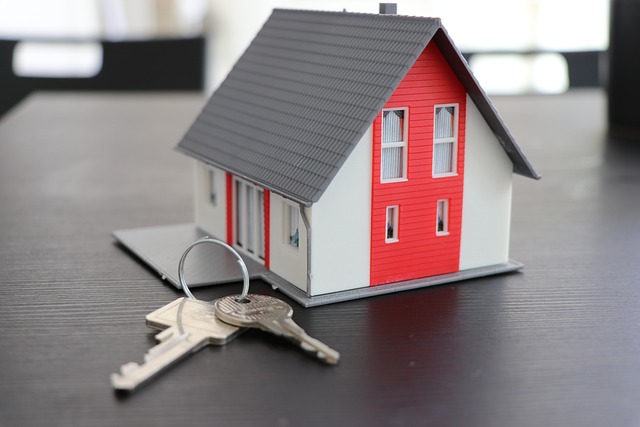Investing in real estate within Singapore's property market necessitates a strategic approach, considering the cyclical nature of the market and the importance of purchasing at opportune times to maximize returns. Key economic indicators such as GDP growth, interest rates, and demographic trends must be analyzed as they play a crucial role in influencing property prices. Prospective investors should be aware of the stages within the real estate cycle—from recovery to peak and contraction to trough—each offering different investment opportunities. For instance, buying during the recovery phase can lead to long-term value appreciation as market confidence returns. The expansion phase might provide lucrative opportunities to sell at higher prices if you've acquired properties at lower costs earlier. Government policies, new housing supply, and population dynamics are significant factors that affect market dynamics in Singapore, characterized by its resilient and steady property growth. To make informed decisions, investors should monitor broader economic trends and assess the current position of the property market cycle when considering 'Buying Property In Singapore.' By staying attuned to these elements, investors can better navigate the market's fluctuations throughout the year, capitalizing on price volatility and securing favorable deals.
When considering the optimal timing for buying property in Singapore, astute investors understand that success hinges not only on market analysis but also on a keen grasp of economic rhythms and real estate cycles. This comprehensive guide delves into the strategic nuances of investing in Singapore’s property market throughout the year. We explore historical trends, seasonal economic factors, and government policies that influence investment windows, offering insights from industry experts to help you pinpoint the best moments for your purchase. By understanding quarterly market cycles, interest rate dynamics, and the impact of global economic shifts, investors can make informed decisions, align with property cooling measures, and capitalize on festive and national holiday periods for advantageous deals. Whether you’re a first-time homebuyer or an experienced investor, this article equips you with the knowledge to navigate Singapore’s vibrant real estate landscape and secure your investment at the most opportune times.
- Understanding the Real Estate Cycle in Singapore: A Timely Guide for Investors
- Strategic Considerations for Capitalizing on Property Markets Year-Round
Understanding the Real Estate Cycle in Singapore: A Timely Guide for Investors
Navigating the real estate cycle in Singapore is a pivotal aspect for investors seeking to capitalize on market fluctuations. Prospective buyers must consider the cyclical nature of property prices and rents, which can be influenced by economic indicators such as GDP growth, interest rates, and population demographics. The cycle typically progresses through phases of recovery, expansion, peak, contraction, and trough, each presenting distinct opportunities for investment. For instance, buying during the recovery phase may offer potential for value appreciation as market confidence returns. Conversely, the expansion phase often sees a surge in property prices, which could be an opportune time to liquidate assets if holding properties acquired at lower prices.
Timing your purchase within the real estate cycle is a strategic move that can yield significant financial benefits. In Singapore, where the market is known for its resilience and steady growth, investors should focus on long-term trends rather than short-term fluctuations. Factors such as government policies, supply of new housing units, and changes in population structure play crucial roles in shaping market dynamics. By staying informed and aligning your investment decisions with the understanding of where Singapore’s property market is within its cycle, one can make more calculated and profitable choices when Buying Property In Singapore. Investors should also keep an eye on broader economic trends and how they might influence property demand and supply, ensuring they are well-positioned to take advantage of the best times of the year to invest in this vibrant market.
Strategic Considerations for Capitalizing on Property Markets Year-Round
When contemplating the optimal timing for buying property in Singapore, one must consider various factors that can influence market dynamics throughout the year. Strategic considerations often hinge on economic indicators, interest rates, and government cooling measures. Typically, the property market in Singapore experiences a peak in transactions during the second half of the year, particularly from July to December. This is when buyers are more likely to be motivated by upcoming events such as the Hungry Ghost Festival in August and the Chinese New Year celebrations in February of the following year. These cultural observances can influence sentiment and buying behavior, making it a favorable period for sellers who aim to close deals before the festive season.
Moreover, investors should monitor Singapore’s economic landscape and interest rate trends, as these factors can significantly impact mortgage repayments. A higher base rate can lead to increased borrowing costs, which might dampen demand and present a buying opportunity for those with a keen eye on the market. Similarly, property cooling measures introduced by the government can affect purchasing power and market liquidity. By staying abreast of these changes and understanding their implications, astute investors can navigate the property market year-round, identifying windows of opportunity to capitalize on price fluctuations and secure favorable deals when buying property in Singapore.
For those contemplating the optimal entry points into Singapore’s property market, this guide has shed light on the intricacies of the real estate cycle and strategic considerations for year-round investment. Prospective investors should carefully assess market trends and economic indicators, as these factors can significantly influence the timing of their purchase. By considering the cyclical nature of property prices in Singapore and aligning investments with market fluctuations, buyers can make informed decisions that potentially maximize returns and mitigate risks. Ultimately, understanding when to buy property in Singapore is a key factor for successful investment outcomes, and this guide provides a solid foundation for making those pivotal real estate decisions.
